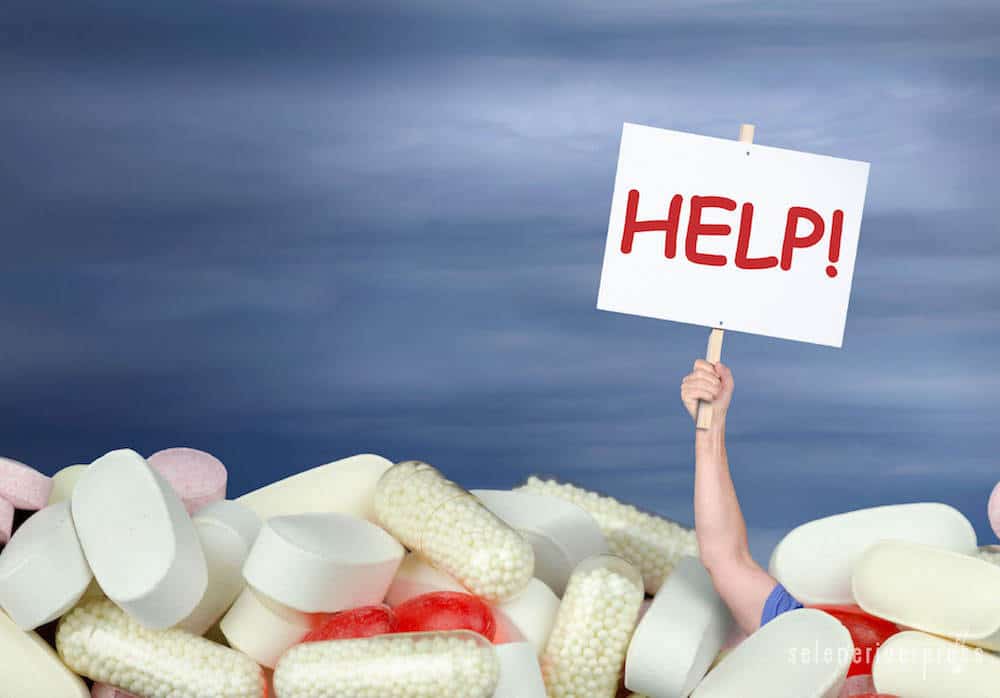One of my favorite sayings is the famous Mae West quip, “Too much of a good thing can be wonderful!” I love this quote as it applies to my personal life goals and ambitions, not to mention my children. But when I really think about it, I see the danger this kind of thinking can have on other parts of life, especially in nutrition. Many of us get so worried about making sure we’re giving our bodies all of the necessary nutrients that we grossly overcompensate. In the process, we can end up causing real damage. This is especially true with synthetic vitamins.
Living in such a fast paced society of grab-and-go processed foods and sugary snacks, plus the occasional (or not so occasional) trip to the restaurant or drive-thru, it can be difficult to get all the necessary vitamins. That’s why vitamin supplements seem like such a godsend. We walk down the vitamin aisle, grabbing bottles of multivitamins, vitamin C, vitamin B, calcium, magnesium, and the list goes on and on. Now you have a quick way to supplement your lacking vitamins—but did you know you can overdose on synthetic vitamins?
Like so many others, I didn’t realize the dangers of overdosing on vitamins. In school nutrition classes, I learned that you didn’t need to worry about taking an excess of vitamins and minerals—your body simply keeps what it needs and excretes the rest in your urine.
However, after reading Dr. Royal Lee’s “The Fallacy of ‘High Potency’ in Vitamin Dosage” originally published in the Lee Foundation for Nutritional Research circa 1950, I made some frightening realizations about the dangers of vitamin overdoses. For instance, Dr. Lee found that high doses of a synthetic vitamin can cause the very same symptoms of a deficiency of that same vitamin! Our so-called “cure” could be causing the very problem we think we’re fixing!
After reading further, I discovered the four common fallacies of synthetic vitamin consumption.
Fallacy #1: If a Little Is Good, More Is Better
This is a big mistake in nutrition, but it’s an assumption many people make, myself included. Dr. Lee brilliantly explained why it’s false when he stated, “We all know that if we get good results from ingesting the normal daily requirement of carbohydrates, fats, and proteins, then we would be morons to assume we would get twice-as-good effects from twice the normal schedules of bread, butter, meat, milk, and potatoes.”
Fallacy #2: Exceeding Daily Values Boosts Body Functions
This fallacy has been fostered by vitamin companies to hoodwink the public into buying their product. By loading up the formula with ten times the daily requirement found in the cheap synthetic vitamins, they want the buyer (you and I) to think we’re getting some high-potency supplement that will stimulate our body functions. But if you read the labels carefully, you’ll find less, if any, of the costlier vitamins. These companies prey on the gullible buyer, and I’ve fallen for it more times than I care to admit!
Fallacy #3: Excess Vitamins Replenish Reserve Stores
Though Dr. Lee admits this is the only valid argument for a higher vitamin intake, he still believes the risk outweighs the rewards. Few vitamins are even stored by your body, especially the water-soluble ones that simply pass through your system.
Fallacy #4: Vitamin Overdose Is Better Than Vitamin Deficiency
This shocked me most of all. In the article I mention above, Dr. Lee found that taking a synthetic vitamin in excess quantities can cause the same symptoms as the deficiency of that vitamin! For example, synthetic vitamin B1 (thiamine) in small doses can cure herpes zoster (a herpes virus that causes chickenpox and shingles), yet in large doses it can cause herpes zoster! Thiamin overdose has toxic effects, including gallstones, sterility in lactating mothers, and liver disease, which can be fatal.
Check out the rest of the article for more examples of specific vitamin overdoses and their effects on health, as well as his discussion of how and why companies are getting away with this. It’s a quick read and well worth your time.
Still think too much of a good thing can be great? Well, maybe it is, at least in some aspects of life—but definitely not in synthetic vitamin consumption! How do we make sure we’re getting enough vitamins without getting too many? We can start by eating whole foods, but we must keep in mind that a whole foods diet isn’t always enough.
Another problem Dr. Lee addresses in his vast body of work is what to do once you develop nutrition deficiencies. This isn’t something that a good diet alone can undo, so Dr. Lee developed a whole food line of supplements.
Thanks to Standard Process, you can take your supplements without any worries about overdosing. In the process, you can ensure you’re never vitamin deficient again!
Photo from iStock/mokee81


